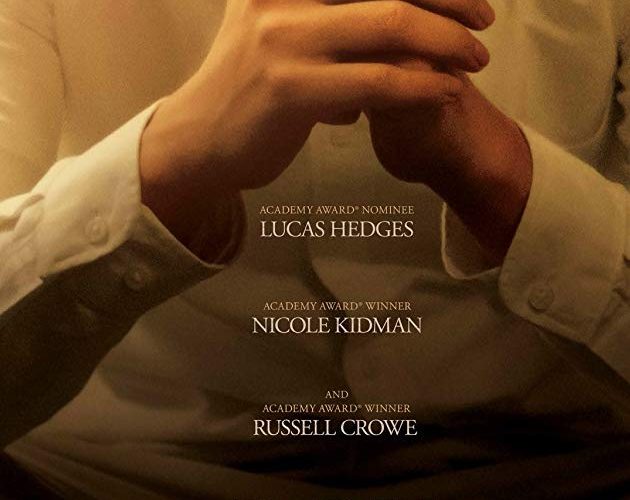Boy Erased (Edgerton, 2018)
Charlotte Perkins Gilman’s “The Yellow Wallpaper” is the harrowing, autobiographically inspired story of a woman suffering from postpartum depression who is confined against her will and whose “treatment” drives her to madness. It is an iconic feminist text, most often read as the prototypical illustration of patriarchy dominating and controlling women’s bodies and doing great harm to their souls in the process. It is also probably the greatest American horror story ever written.
Boy Erased, Joel Edgerton’s film treatment of Garrard Conley’s book about gay conversion therapy is equally horrific. It turned me inside-out emotionally. Here’s the thing these two (and I expect most other truly great) American horror stories have in common — they show how the worst violence we do, we justify in the name of love. A person who rejects or even injures another person out of hate or anger is understandable and easy to preach against. The person who does so because he has convinced himself (or herself) that it is the right thing to do, the only thing to do, the (I grit my teeth as I write it) loving thing to do, evokes genuine horror. Because that kind of sin is so easily justifiable in the eyes of man, we can convince even ourselves that the evil we do (even if that evil is just remaining silent) is well-intentioned.
It probably isn’t right to call this a review. I’m not here to talk about the technical merits of the film, though they are many. Lucas Hedges, Nicole Kidman, Russel Crowe, and Joel Edgerton embody their characters in ways that make their pains seem so real that it almost feels an insult to the human beings they stand in for to praise the actors for being them. The writing avoids the stridency I expected and even the cheap shots that would and could be an easy way to stoke the audience’s righteous indignation into outright hate.
But what makes the film both painful and important is that it understands in a way so very, very few critiques of Christianity do that homophobia isn’t nearly as big a horror as certainty. Homophobes can be educated. Anyone can be educated. But only if they have the courage to make the fearless moral inventory they so often suggest to others. The largest accusation the film makes of Christians is not that most of them are homophobes but that most of them are cowards. If that accusation stings, perhaps it is because it hits close to the heart of the matter.
Boy Erased is also horrific because of the ways in which it shows Jared, at least initially, being complicit in his own abnegation. He wants to change, not to please his mother or father, but because he truly believes in the sermons his father preaches. Paradoxically, the treatments that are supposed to save him are what opens his eyes to how frail are the assumptions on which they are based.
It is probably worth adding that the film has the best and most uplifting depiction of repentance that I can ever remember seeing on film…and it’s not by who you think or for what you think. Of course, that repentance is based on the premise that in our bones, we know the truth–or at least that we know when we are lying to ourselves. At the other end of the spectrum is a father who essentially offers a Nuremberg defense: he sought the counsel of wiser men and did what they told him was right.
So too did the husband of the narrator in “The Yellow Wallpaper,” and its always been telling to me that in Gilman’s story, the greater anger is not for the man who hurt her directly but for the man who directed him to do so.
“Now with the wisdom of years, I try to reason things out
And the only people I fear are those who never have doubts
Save us all from arrogant men, and all the causes they’re for
I won’t be righteous again,
I’m not that sure anymore.” — Billy Joel, “Shades of Grey”


One Reply to “Boy Erased (Edgerton, 2018)”